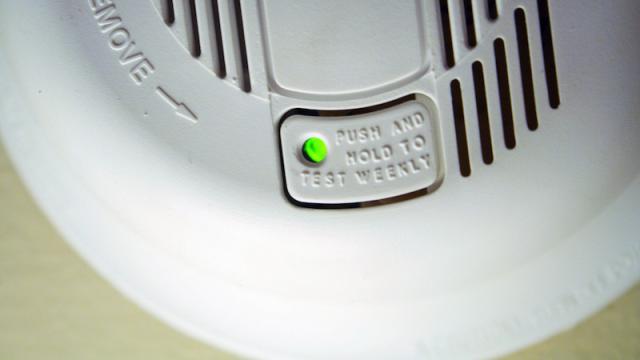You know that you need to replace your smoke detector’s batteries when they run out, but you might not realise that you should also replace the smoke detector itself every 10 years as the sensors wear down.
Image from alachuacounty.
This might sound like a ploy to get you to shell out for a new alarm every decade, but you’re better off doing it for several reasons:
- Peace of mind: You’ll know that your home has a working system to alert you in case of fire. You should make sure there’s alarms on each level of your home as well as one within earshot of your bed (many fires start when you’re asleep). Ideally, they’re interlinked so that when one goes off, they all go off so you get as early a warning as possible.
- Limiting effects to your insurance: If you have a homeowner’s or rental insurance policy, you likely have a section on protections your home must have to qualify for the policy. This often includes having working, non-expired smoke detectors. Even if your policy doesn’t have a section on this, alerting your agent that you have non-expired alarms can sometimes lower your rate or work in your favour during insurance investigations after a fire.
- Following other regulations: If you’re a landlord, you’re likely required to make sure your rental properties all have working, non-expired smoke detectors.
Consumer Reports points out that you can test your smoke alarm’s sensors using a test spray that simulates smoke, but that the best thing is to just replace an alarm that has passed its expiration date. Check for the date by looking for the manufacture date on the underside of your alarm (the part that typically faces the ceiling). Add 10 years to that date and you have your expiration date. You might want to write this date on a piece of painter’s tape or on the outside of the alarm so it’s easy for you to see when to pick up a new one.

Comments